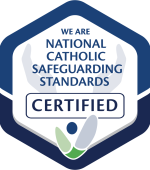Home » Diocesan workers’ obligations to report abuse
Reporting concerns for the safety, welfare or wellbeing of children or vulnerable persons is a cornerstone of safeguarding culture.
Any diocesan worker who reports their concerns for a child or vulnerable person in good faith, will be supported by the Diocese, even if the concerns are later shown to be groundless. The diocesan worker’s supervisor must ensure that no adverse consequences occur to the worker, because of making such a report.
A diocesan worker is any person engaged by or acting on behalf of the Diocese of Maitland-Newcastle, including those:
If you meet any of these criteria you are obliged to satisfy the following reporting obligations.
Concerns for children is a term used to capture a wide range of possible situations or issues that may adversely affect the safety, welfare or well-being of a child or class of children and includes those matters that may:
Diocesan workers must report concerns for children to statutory authorities where appropriate, their supervisor and the Office of Safeguarding.
Peer-on-peer abuse
When assessing your reporting obligations as a Diocesan worker, remember that abuse committed by a child upon another child can be as equally abusive as that committed by an adult. Abusive conduct by a child to another child is referred to as peer-on-peer abuse. Diocesan workers must report serious peer-on-peer abuse to their supervisor, the Office of Safeguarding and, where appropriate, statutory authorities.
Working without a WWCC
Diocesan workers must also report any instance where they believe, on reasonable grounds, that a person is working in the Diocese with children but without a Working with Children Check (WWCC).
Vulnerable persons refers to persons over 18 years of age:
The diocesan worker must have credible grounds to believe that a vulnerable person is being abused or is at risk of being abused.
Except in extraordinary circumstances, diocesan workers should discuss their concerns with the vulnerable person and ensure that person is in control of reporting their own situation. If the vulnerable person states that they do not want their alleged abuse reported, the worker should respect the vulnerable person’s wishes.
However, there are some circumstances where the importance of reporting allegations of abuse takes precedence. If one or more of the following criteria are present, a diocesan worker must report the alleged abuse, irrespective of the vulnerable person’s wishes:
If you are uncertain about what you are dealing with, it is important to discuss your concerns with your supervisor. If your supervisor is unavailable or you believe they are conflicted or are unclear what to do next, as a diocesan worker, you have the right to contact the Office of Safeguarding to discuss your concerns:
P: 4979 1390 (Mon-Fri 9am-5pm)
E: child.protection@mn.catholic.org.au
The type of concern you have determines the timeframe in which you must report it. Some concerns may fit multiple criteria, for example, criminal and ROSH and “reportable conduct”. The following list is set out in order of priority.
If the crime is currently occurring or the situation is an emergency — ring 000 immediately and ask for Police.
If you suspect a crime has occurred — ring your local Police station or The Police Assistance Line 131 444 immediately.
You must contact your supervisor as a matter of urgency*.
If your supervisor is unavailable or you believe there is an issue with your supervisor, you must contact the Office of Safeguarding as a matter of urgency* 02 4979 1390.
Contact FaCS Child Protection Hotline 132 111 immediately or within 24 hours (in accordance with the MRG).
You must advise your supervisor as a matter of urgency*.
Also, you or your supervisor must report to the Office of Safeguarding within one business day 02 4979 1390 or email child.protection@mn.catholic.org.au.
You must advise your supervisor as a matter of urgency*.
Also, you or your supervisor must report to the Office of Safeguarding within one business day 02 4979 1390 or email child.protection@mn.catholic.org.au
You must contact the Office of Safeguarding within one business day 02 4979 1390 or email child.protection@mn.catholic.org.au
If the alleged breach of professional standards involves concerns for the safety, welfare or wellbeing of a child or vulnerable person, you must contact your supervisor within five business days.
Also, you or your supervisor must report to the Office of Safeguarding within five business days 02 4979 1390 or email child.protection@mn.catholic.org.au
If the alleged breach of professional standards does not relate to the safety, welfare or wellbeing of a child or vulnerable person but would be considered a complaint, you should contact your supervisor and act in accordance with the relevant complaints management policy and procedure.
* Reporting as a matter of urgency means reporting without delay. The diocesan worker will report the matter as a priority before other obligations or demands, and after addressing the immediate safety and wellbeing of the child, vulnerable person or other persons.
The reporting matrix sets out the timeframes applied to all diocesan workers. However, there are a number of factors that affect how urgently you should report your concerns.
A diocesan worker failing to report their concerns for children or vulnerable persons is considered a serious breach of professional standards and may be, in particular circumstances, a criminal offence.
The Diocese will investigate any alleged failures to report and should it be established they failed to report in accordance with Diocesan policy and procedure, the worker may be subject to disciplinary proceedings. Disciplinary action may include:
For volunteers, disciplinary action may involve being counselled or being directed to cease volunteering.
Office:
50 Crebert St, Mayfield
PO Box 152, Mayfield NSW 2304
P: 02 4979 1390
E: childprotection@mn.catholic.
www.officeofsafeguarding.org.au
